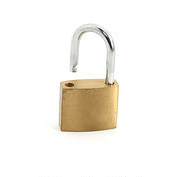Open Access Philosophy Textbooks
Open educational resources (OER) are “any kind of material that you can use in teaching and learning that is openly available.” Richard Zach (Calgary) explains that “openly available” in this context means:
Available under a license which allows the “five Rs of openness“:
- Retain – the right to make, own, and control copies of the content
- Reuse – the right to use the content in a wide range of ways (e.g., in a class, in a study group, on a website, in a video
- Revise – the right to adapt, adjust, modify, or alter the content itself (e.g., translate the content into another language)
- Remix – the right to combine the original or revised content with other open content to create something new (e.g., incorporate the content into a mashup)
- Redistribute – the right to share copies of the original content, your revisions, or your remixes with others (e.g., give a copy of the content to a friend)
OER could include syllabi, handouts, slides, videos, and books. In his post, Zach, one of the creators of the Open Logic Project, focuses on textbooks, since hard copies of them can be so expensive. Openly available textbooks are not yet common in philosophy, but you can see what he has found here.
Importantly, he notes:
One way of getting more open philosophy textbooks would be for authors of existing textbooks to reclaim their copyright. This is possible for works for which copyright was transferred to a publisher in 1978 or later, and 35 after the rights were transferred. If your textbook is out of print, the publisher may relinquish the rights if you ask. Once you have your rights back, you can license your book under a Creative Commons license, and voilà, open textbook!
Discussion of OER and related issues welcome.



For those looking for texts in early modern philosophy, there is this excellent resource, which I have nothing to do with, but I’ve used these translations/texts in my courses:
http://www.earlymoderntexts.com/texts
Also, Ian Johnston at Vancouver Island University has put together an impressive collection of translations/open access works for use in teaching, etc.–primarily ancient and modern; I’ve used the Nietzsche translations in my course and they are quite good:
https://records.viu.ca/~johnstoi/
Thanks to everyone spearheading projects like the above! I imagine this is especially helpful at universities at which buying books constitutes a significant financial burden on the students.
The Early Modern Texts site is a wonderful resource. But note that the texts are only provided as PDFs and that Bennett and the new maintainers Peter Millican and Amyas Merivale still retain the full rights. They no doubt are concerned about commercial use. There is a Creative Commons license that prohibits commercial use, but would allow, for instance, the conversion of the text into other formats, excerpting the texts, or intervening in the texts (ie, making changes to the translations): CC-BY-NC. They’d probably be ok with that if anyone asked, but converting everything to an open license would be more encouraging, I think.
For more about rights reversion, check out the Authors Alliance [1], a Berkeley CA-based non-profit (not to be confused with the Authors Guild). Here’s a link — at [2] below — to their CC BY guide, “Understanding Rights Reversion,” which may be useful for getting acquainted with the process.
Recently, AA helped Harvard historian (and key figure in open access) Robert Darnton recover the rights to two of his books, which were then released under CC BY-NC licenses and uploaded to the HathiTrust and Internet Archive. [3]
So, this kind of thing is not unheard of, though it’s certainly not easy to do. I’m pretty excited about AA’s work, and I hope the links below are helpful for any authors reading this who may want to recover their rights to a philosophy text. (I’d love to see that happen!)
[1] http://www.authorsalliance.org/
[2] http://www.authorsalliance.org/2015/04/09/keeping-your-books-available/
[3] http://www.authorsalliance.org/2015/09/11/robert-darnton-and-authors-alliancea-rights-reversion-success-story/
Brad Dowden (CSUS) did this exact reclaiming move with his textbook, Logical Reasoning. It’s a logic/critical thinking text. And now it’s open access (in DOC or PDF):
http://www.csus.edu/indiv/d/dowdenb/
Dowden opted for a license that doesn’t allow any derivative works.
The license at Early Modern Texts is really unclear, in ways that become problematic if you think about applying it some years in the future. It says “You may download and save the texts to your computer’s hard disk” — as written, this is just about the specific storage medium of a hard disk. I’m sure they are fine with it being on a thumb drive, a cell phone, or any other personal storage device, but it’s not explicitly permitted.
Not only that–it’s not provided in a format that can be edited or converted. What they allow is that anyone can downlaod and print it for teaching purposes. But you can’t do, e.g., what Alex Dunn did with Ott’s collection: convert it to a differnt format (Markdown) and provide it in ePub format so you can read it on a Kindle, or in an online HTML version. You also can’t make excerpts or change the text in any way, e.g., if you’re unhappy with a translation or if you want to add footnotes to it. If they provided it in the original Word format and put a CC-BY-NC license, all that would be allowed, and what they are worried about (commercial use of their work, use without giving credit/linking back) would still be disallowed.